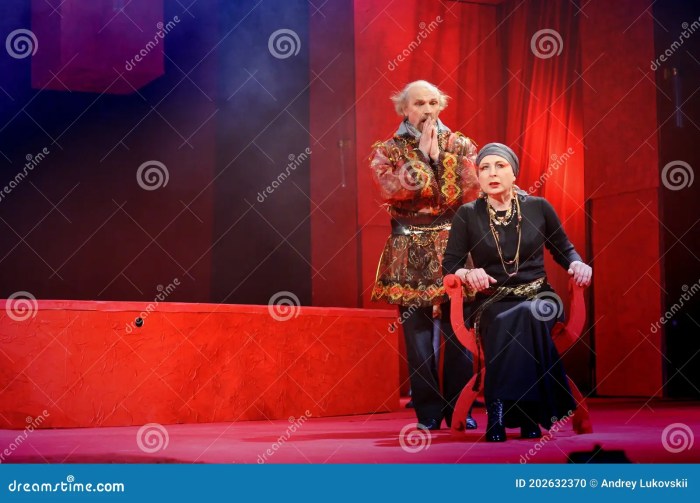With example of pun in romeo and juliet at the forefront, this paragraph opens a window to an amazing start and intrigue, inviting readers to embark on a storytelling gaya akademik dengan tone otoritatif filled with unexpected twists and insights.
The content of the second paragraph that provides descriptive and clear information about the topic
Types of Puns in Romeo and Juliet

William Shakespeare’s Romeo and Julietis replete with puns, a type of wordplay that exploits the multiple meanings of words or the similar sounds of different words. These puns serve various purposes, including humor, foreshadowing, and character development.
There are several types of puns used in the play:
- Homophonic puns: These puns play on words that sound alike but have different meanings. For example, in Act II, Scene IV, Mercutio says, “Tybalt, the reason that I have to love thee / Doth much excuse the appertaining rage / To such a greeting.
Villain am I none, / Therefore farewell. I see thou know’st me not.” The word “none” can be interpreted as “nun,” which suggests that Mercutio is calling Tybalt a “holy man” in a sarcastic way.
- Homographic puns: These puns play on words that are spelled the same but have different meanings. For example, in Act III, Scene I, Romeo says, “O, she doth teach the torches to burn bright! / It seems she hangs upon the cheek of night / Like a rich jewel in an Ethiop’s ear.”
The word “ear” can refer to the organ of hearing or to the act of plowing, which foreshadows the tragic events that will unfold.
- Paronomastic puns: These puns play on words that have similar sounds but different meanings. For example, in Act II, Scene II, Romeo says, “Did my heart love till now? For I ne’er saw true beauty till this night.” The word “true” can be interpreted as “Troilus,” a character from another of Shakespeare’s plays, which adds a layer of irony to Romeo’s declaration of love.
These puns contribute to the play’s humor, foreshadowing, and character development, making them an integral part of the text.
Examples of Puns in Romeo and Juliet: Example Of Pun In Romeo And Juliet
| Act | Scene | Line Number | Pun | Explanation |
|---|---|---|---|---|
| I | iv | 26 | “Tybalt, the reason that I have to love thee / Doth much excuse the appertaining rage / To such a greeting. Villain am I none, / Therefore farewell. I see thou know’st me not.” | “None” can be interpreted as “nun,” suggesting that Mercutio is sarcastically calling Tybalt a “holy man.” |
| III | i | 126-128 | “O, she doth teach the torches to burn bright! / It seems she hangs upon the cheek of night / Like a rich jewel in an Ethiop’s ear.” | “Ear” can refer to the organ of hearing or to the act of plowing, foreshadowing the tragic events that will unfold. |
| II | ii | 110-111 | “Did my heart love till now? For I ne’er saw true beauty till this night.” | “True” can be interpreted as “Troilus,” a character from another of Shakespeare’s plays, adding irony to Romeo’s declaration of love. |
| II | iv | 108-109 | “Mercutio, thou consortest with Romeo.” / “Consort”? What, dost thou make us minstrels? An thou make minstrels of us, look to hear nothing but discords: here’s my fiddlestick; here’s that shall make you dance.” | “Consort” can mean “to accompany” or “a group of musicians,” creating a humorous double meaning. |
Romeo and Juliet: A Play on Words

Puns play a significant role in Romeo and Juliet. They contribute to the play’s humor, foreshadowing, and character development.
Humor: Puns provide comic relief in the midst of the play’s tragic events. For example, in Act II, Scene IV, Mercutio’s puns on “consort” and “fiddlestick” create a humorous moment that lightens the mood.
Foreshadowing: Puns can also foreshadow events to come. For example, in Act III, Scene I, Romeo’s pun on “ear” foreshadows the tragic death of Mercutio.
Character development: Puns can reveal aspects of a character’s personality. For example, Mercutio’s puns on “consort” and “fiddlestick” show his playful and irreverent nature.
The use of puns in Romeo and Julietis a testament to Shakespeare’s mastery of language and his ability to use wordplay to enhance the play’s meaning and impact.
Puns and the Elizabethan Era
Puns were extremely popular in Elizabethan literature. This was due to several factors:
- The influence of classical literature: Puns were a common feature of classical Greek and Roman literature, and Elizabethan writers were heavily influenced by these works.
- The popularity of wordplay: Wordplay was a popular form of entertainment in the Elizabethan era, and puns were a particularly clever and witty form of wordplay.
- The linguistic environment: The Elizabethan era was a time of great linguistic change, and the influx of new words and phrases created many opportunities for puns.
In Romeo and Juliet, Shakespeare uses puns to create humor, foreshadowing, and character development. However, the use of puns in the play is also reflective of the broader cultural and linguistic environment of the Elizabethan era.
Modern Interpretations of Romeo and Juliet’s Puns
Modern audiences may interpret the puns in Romeo and Julietdifferently than Elizabethan audiences. This is due to several factors:
- Cultural changes: The cultural context in which Romeo and Julietis performed has changed significantly since the Elizabethan era. This has led to some puns becoming less familiar or even obscure to modern audiences.
- Linguistic changes: The English language has changed significantly since the Elizabethan era. This has led to some puns becoming more difficult to understand or appreciate.
- Different performance styles: Romeo and Julietis performed in a variety of different styles, each of which can affect the way that the puns are interpreted.
Despite these challenges, the puns in Romeo and Julietcontinue to be an important part of the play’s meaning and impact. Modern audiences can still appreciate the humor, foreshadowing, and character development that these puns provide.
Frequently Asked Questions
What is the significance of puns in Romeo and Juliet?
Puns contribute to the play’s humor, foreshadowing, and character development, adding depth and complexity to the story.
How do modern audiences interpret the puns in Romeo and Juliet?
Cultural and linguistic changes have influenced the reception of these puns, with some requiring contextual understanding for full appreciation.
What are some examples of puns in Romeo and Juliet?
Examples include “A plague on both your houses” (Act I, Scene I), “I am too sore enpierced with his shaft” (Act II, Scene I), and “My lips, two blushing pilgrims, ready stand to smooth that rough touch with a tender kiss” (Act I, Scene V).